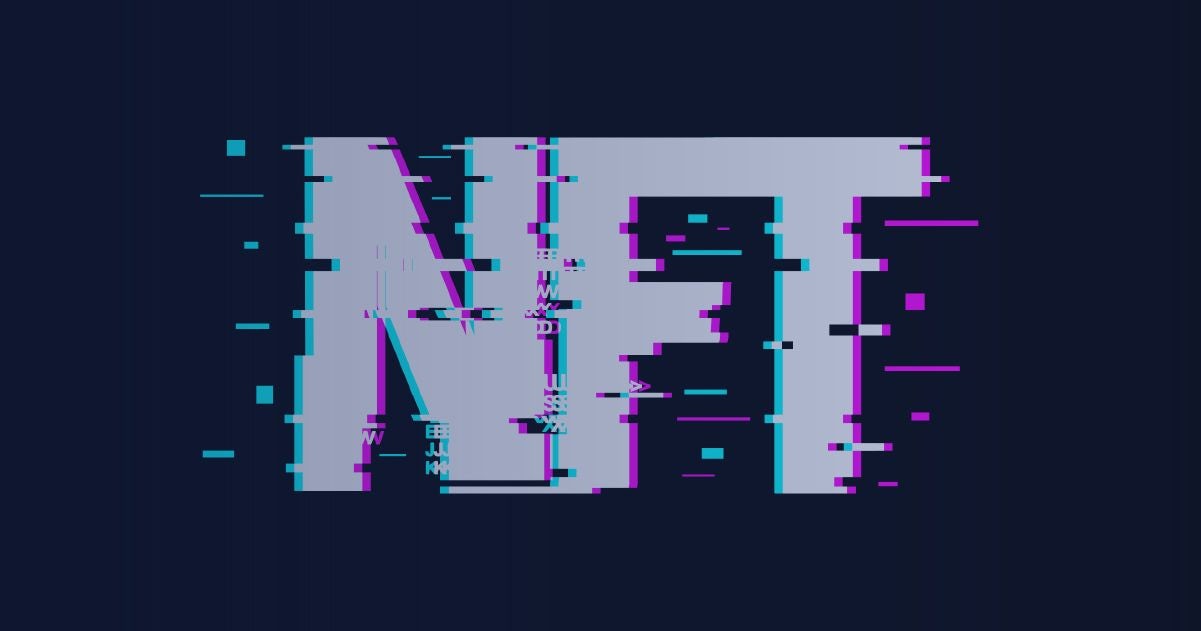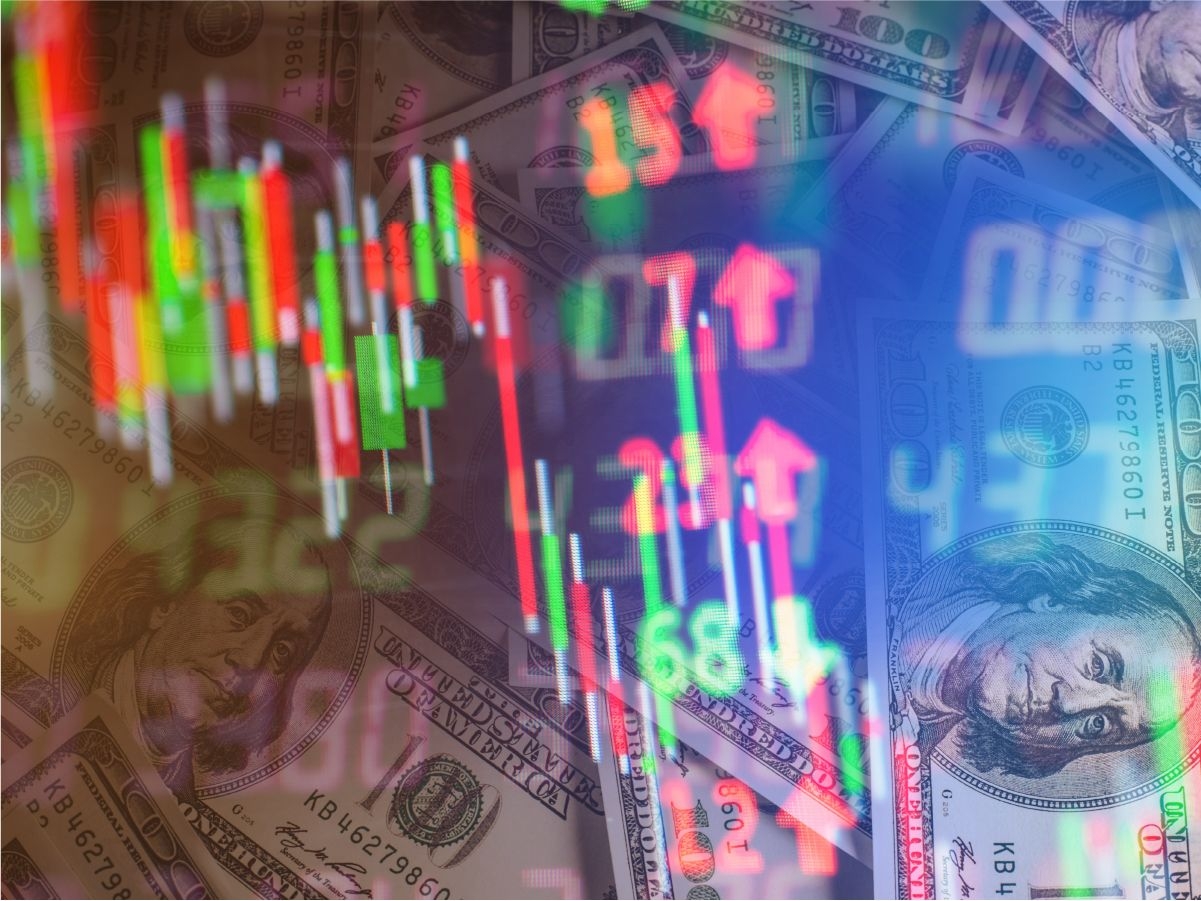In the year since non-fungible token (NFT) popularity has exploded, the situation has only grown more complicated. NFTs have been sold for millions of dollars, and headlines are flooded with news of incredible NFT project valuations and news stories. All of this may have left you wondering: what is an NFT, anyway? These digital assets are selling like 17th-century exotic Dutch tulips, from art and music to tacos and toilet paper.
But are NFTs worth the money, or are they just hype? Some say they're a bubble set to pop; others believe that NFTs are here to stay and will change investing forever. Read this article to discover everything you need to know about this innovative technology.
Table of contents:
What is NFT?
Non-fungible token (NFT) stands for cryptographic assets located on a blockchain. You can distinguish them from each other thanks to their unique identification codes and metadata. Unlike cryptocurrencies – which are fungible tokens – NFTs cannot be traded or exchanged at equivalency. Cryptocurrencies are identical to each other and can therefore serve as a medium for commercial transactions.
For example, a bitcoin is fungible – you can trade one bitcoin for another one, and you'll have exactly the same thing. A one-of-a-kind trading card, however, is non-fungible. You'd have something completely different if you traded it for a different card.
Most NFTs are, at a high level, a component of the Ethereum blockchain. But other blockchains have implemented their own version of NFTs.
Fungible vs. non-fungible tokens
In essence, fungible means "mutually substitutable." Fungibility is an essential property of money and other financial instruments, such as stocks or bonds. Fungibility means that one unit of a financial instrument is always equivalent to another unit of the same instrument.
For example, one dollar bill can always be exchanged for another dollar bill or used to purchase a variety of goods and services. Similarly, one ether (the digital currency used in Ethereum) is always equal to another ether. The fungibility characteristic makes cryptocurrencies suitable as a secure medium of exchange in the digital economy.
NFTs are unique digital representations of unique assets and have been compared to digital passports because each token contains a unique, non-transferable identity that distinguishes it from other tokens. They are also extensible. This means that you can combine one NFT with another to "breed" a third, unique NFT. NFTs also contain ownership details that allow easy identification and transfer between token holders. You can also add metadata or attributes pertaining to the asset in NFTs.
Key use cases of NFTs
Non-fungible tokens offer several use cases to solve problems in the digital world. They can be used to digitalize physical objects such as real estate and artwork, connect artists with audiences, or create entirely new markets. Collectibles, such as digital artwork, sports cards, rarities, and other one-of-a-kind items, are the most hyped space for NFTs at the moment.
For example, NBA Top Shot is one of the most popular NFT marketplaces for digital NFTs of notable moments from the NBA's past. Some of these digital cards have been sold for millions of dollars. Recently, Twitter's CEO Jack Dorsey tweeted a link to a tokenized version of the first tweet ever, "Tweet/20" – in which he wrote, "just setting up my twttr." It sold for more than $2.9 million."
How did it all start? In March 2021, a set of NFTs created by the digital artist Beeple sold for more than $69 million. This sale set a precedent and set a record for the most expensive piece of digital art.
Examples of NFTs
Some of the most popular uses of non-fungible tokens to date include cryptokitties and the Bored Ape Yacht Club.
Cryptokitties are representations of cats with unique identities on Ethereum's blockchain. Each cat is unique, has a price in ether, and reproduces among itself to produce new offspring with different attributes and valuations compared to their parents. A few weeks after their launch, cryptokitties attracted a fan base that spent $20 million worth of ether to purchase, feed, and nurture the cats. Some even spent over $100,000 on the effort.
More recently, the Bored Ape Yacht Club got a lot of attention for its high prices and celebrity following (not to mention the high-profile thefts of 10,000 of its NFTs).
In contrast to the cryptokitties and Bored Ape Yacht Club use cases that may sound trivial, other NFTs have more serious business applications. For example, NFTs are used in private equity transactions as well as real estate deals. By enabling multiple types of tokens in a contract, you get the ability to provide escrow for different types of non-fungible tokens – from artwork to real estate – into a single financial transaction.
Why are NFTs important?
By enabling a digital representation of physical assets, NFTs are a step forward in the reinvention of this infrastructure. Naturally, the idea of digital representations of physical assets isn't anything new. Nor is using unique identification. But when you bring these concepts together with the benefits of a tamper-resistant blockchain, they become a potent force for change.
Faster and more direct business processes
Non-fungible tokens can streamline business processes by eliminating intermediaries and removing the need for agents. They also make it easier for artists to connect directly with their audiences and allow them to sell digital artwork and collect money directly from their fans. For example, NFTs representing artwork on a blockchain can help artists track their sales and prove ownership of their works.
Improved identity management
NFTs can be used to improve identity management in physical and digital spaces. For example, they can enable governments to replace passports with a digital equivalent that is easier to produce at border crossings.
Fractionalizing assets
Moreover, organizations can use NFTs to fractionalize physical assets like real estate. Fractionalization of a digital asset is much easier than it is for a physical one; therefore, tokenization of real estate assets can make investing more democratic. NFTs don't have to be limited to real estate; other types of assets, such as artwork, can also be divided into digital chunks that represent ownership in each piece. Such arrangements might increase the value of the asset.
Creating new markets
The most exciting possibility for NFTs is creating new markets and types of investments. Imagine a piece of real estate parceled out into multiple divisions, each with different characteristics and property types; different NFTs could represent these divisions. One division might be next to a beach, another is in an entertainment complex, and yet another is in a residential district. Each piece would be unique and priced differently depending on its characteristics; therefore, each piece would need to be represented by an individual NFT.
As non-fungible tokens become more sophisticated and integrate into the financial infrastructure, they may serve as the basis of a new market – the NFT market. This market could be used to trade tokenized pieces of land located in different parts of the world, with each piece having its own value.
The future of NFTs
The utility of non-fungible tokens lies in their use of blockchain technology, which is impossible to alter or hack. This makes blockchain useful for proving ownership of a unique asset. Beyond simple pixelated art, this technology has almost limitless applications beyond real estate.
Suppose one day the deed to your apartment exists as an NFT – instead of having to be re-generated every time the property changes hands, the deed would log all changes automatically, making closing a deal much faster. It would also be much more secure because nobody could forge house ownership as they wouldn't be able to alter the NFT.
This wouldn't just apply to houses. NFTs could find use cases in any environment where ownership has to be tracked and proven. Instead of spending time hunting down paperwork to prove that you own something, the NFT would offer a perfect record of an item's entire history of ownership.
NFTs have many potential applications.
For example, a gig worker could mint a token representing his or her skills and experience. In the future, prospective employers may be able to use NFTs to bid on workers. Since NFTs provide a digital work order that can be changed in real-time as the job progresses, colleges could create NFTs representing applicants' profiles, which would be bid on by offering admission and scholarships.
NFTs improve security for both buyers and sellers by reducing transaction processing costs. The fees involved in these transactions are often a function of the analog systems that are used to process them; with NFT technology, these fees could be dramatically reduced. This would also create opportunities for volume expansion in transactions.
Is investing in NFTs worth it?
Does it make sense to jump on an NFT marketplace and buy NFTs? Since the value of NFTs is based on what others are willing to pay for them and because there may be no secondary market if you want to sell your NFTs, demand will drive their price rather than indicators such as stock prices. An NFT may not resell for more than you paid for it, or there may be no secondary market at all for selling NFTs.
Additionally, unlike stocks, which receive preferential long-term capital gains rates when they're sold at a profit and may even be taxed at lower rates depending on how long the investor has held them, there is no guarantee that an NFT will receive preferential long-term capital gains treatment and may even be taxed as a collectible (at higher rates). This means that you could end up paying more in taxes than if you had held onto stocks instead.
E-commerce, at least in its present form, has always been a risky business. Amazon is the dominant Internet retailer in no small part because it provides a name and face that customers can trust. The anonymity of other online retailers can make them more vulnerable to scams.
When dealing with NFTs, investors face additional risks beyond those they would normally associate with an investment opportunity.
There are many ways to get scammed: fake marketplaces, fake sellers (often impersonating real artists and selling copies of their work at a fraction of what the original is going for), and unverified sellers. You need to be especially wary of fraudulent projects and less-than-trustworthy "artists" trying to get rich quick.
Another disadvantage of NFTs is related to their environmental impact. One study found that crypto-mining is more environmentally taxing than mining metals like copper, gold, and platinum. This makes NFTs a bad match for investors looking to avoid such assets.
Examples of NFT scams
The Frosties NFT rug-pull was based on a promise to distribute exclusive mint passes, giveaways, and dibs on a metaverse game to investors who poured over $1.3 million into their scheme. However, the founders shut down their website and closed social media accounts after investors became suspicious of their promises.
Scammers have also started to launch phishing attacks targeting NFTs. For example, on February 22, 2022, scammers made away with $1.7 million worth of NFTs in a phishing attack which targeted the most popular NFT platform, OpenSea. The scammers copied the platform’s email asking to update contact details and sent NFT owners links to fraudulent websites.
At its core, the NFT model involves creating unique digital tokens. Unfortunately, plagiarism is rampant on many platforms. Recently, OpenSea revealed that over 80% of its minted NFTs were fake. So many investors might have bought a stolen copy of a real-world artist’s work.
Wrap up
The benefits of non-fungible tokens are difficult to conceptualize, given the relative newness of the technology. The blockchain technology that underlies NFTs has already changed the world, and it will continue to as organizations solve issues like interoperability and widespread adoption by average consumers.
Instead of remaining a high-priced novelty for people who already have everything else, the NFT projects of the future will be judged by how efficient and secure they make everyday business. Are you planning to invest in NFTs? Or maybe creating your own NFT? Share your thoughts in the comments section – we're curious to hear what you think about this new technology.
If you're looking for a blockchain technology partner – don't hesitate to reach out to us and discuss your project. At Codete, we have all the expertise to take you from PoC and MVP to product design and development.



